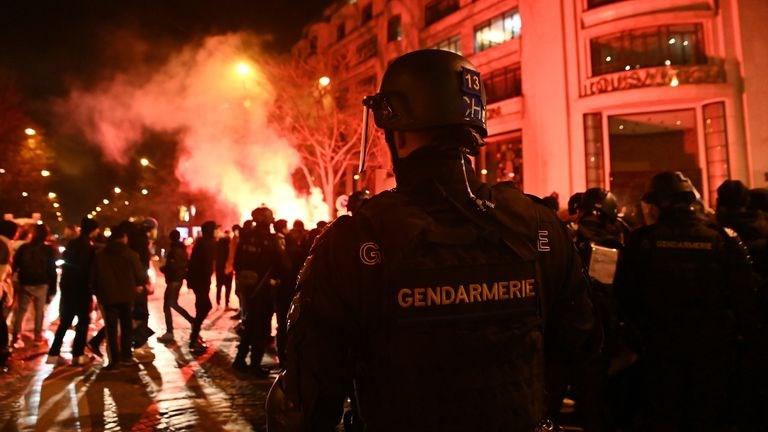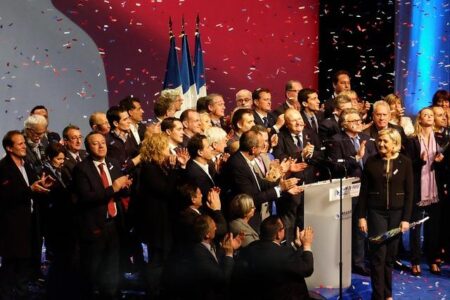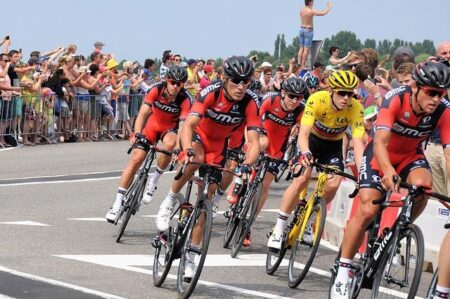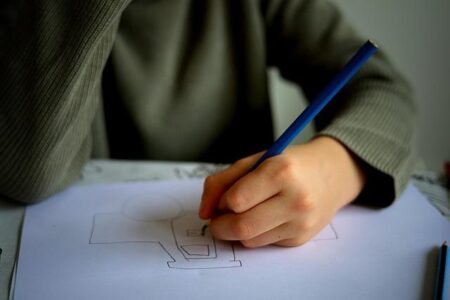Riots Erupt in Paris and Montpellier Following France-Morocco Match; Young Moroccan Killed
In the wake of escalating tensions during celebrations and protests after the recent France-Morocco football match, violent riots have erupted in both Paris and Montpellier. The unrest was ignited by the tragic death of a young Moroccan man, whose killing has sparked outrage and calls for accountability. As clashes between law enforcement and demonstrators intensified, city streets were engulfed in chaos, raising urgent questions about community relations and public safety. This article delves into the details surrounding the incident, the ensuing riots, and the broader implications for France’s diverse population.
Riots Erupt in Paris and Montpellier Following France-Morocco Match
Violence erupted in both Paris and Montpellier late last night in the wake of the tightly contested match between France and Morocco. The chaotic scenes were ignited by a mix of national pride and heightened tensions, leading to clashes between fans and police. Eyewitnesses reported barrage of projectiles, and several vehicles set ablaze as the situation spiraled out of control. Authorities responded with tear gas and arrests, aiming to restore order as groups of young people expressed their frustration and anger in the streets.
The violence tragically culminated in the death of a young Moroccan individual, drawing widespread condemnation and concern from various communities. Local leaders are calling for calm and urging the need for dialogue to address the underlying issues contributing to such unrest. To provide insight into the scale of the violence, authorities have released preliminary statistics:
| Location | Arrests Made | Injuries Reported |
|---|---|---|
| Paris | 50+ | 15 |
| Montpellier | 30+ | 10 |
The tensions serve as a reminder of the complex fabric of multicultural identity within France, where sporting events can sometimes unearth deeper societal issues. Local leaders and community activists are calling for immediate reflection on what sparked such violence and how to ensure future sporting events can unite rather than divide.
Tragic Death of Young Moroccan Sparks Outrage and Tensions
The recent passing of a young Moroccan following unrest in Paris and Montpellier has ignited a wave of outrage across both France and Morocco. Eyewitnesses say that the incident occurred shortly after the highly charged France-Morocco football match, heightening feelings of anger and sadness. Many residents took to the streets, leading to violent clashes with police as they expressed their grief and frustration over the loss. This tragic event serves as a stark reminder of the underlying tensions that can surface in wake of sporting events, particularly when national pride is at stake.
In the aftermath, community leaders and local activists have called for justice and accountability, urging authorities to conduct a thorough investigation into the circumstances surrounding the young man’s death. Demonstrators have gathered to demand change, with many highlighting the necessity for dialogue rather than conflict. Key issues raised during the protests include:
- Social injustice: A call for equality and fair treatment for immigrant communities.
- Public safety: Demands for measures to ensure the safety of all citizens during public events.
- Justice: A push for transparency in police actions that can lead to tragic outcomes.
Analyzing the Underlying Causes of Civil Unrest in Urban Centers
The recent riots in Paris and Montpellier following the France-Morocco football match have once again spotlighted the deep-seated social tensions simmering beneath the surface in urban areas. The tragic death of a young Moroccan escalated an already volatile situation, igniting frustrations that have been brewing for years. Economic disparities, racial profiling, and police relations contribute significantly to the unrest, exacerbated by a lack of representation for marginalized communities. As the tension heightened post-match, the streets became a battleground for multifaceted grievances that transcend mere sports rivalry.
Many observers note that these disturbances are not isolated incidents; rather, they are symptomatic of broader systemic issues impacting urban youth. A deeper analysis reveals several core factors fueling this unrest:
- Economic Inequality: High unemployment rates and limited access to resources strain relationships within communities.
- Social Exclusion: Minority groups often face societal marginalization, leading to feelings of disenfranchisement.
- Police Brutality: Trust erosion between law enforcement and communities escalates tensions when incidents of violence occur.
- Cultural Friction: The clash of identities and cultures can lead to misunderstandings and conflicts.
This tragic event serves as a potent reminder that without addressing these underlying issues, the cycle of unrest is likely to continue, as communities fight for their voices to be heard amid the chaos.
Calls for Community Dialogue and Policy Reform Amidst Ongoing Violence
The recent violence in Paris and Montpellier, triggered by the France-Morocco match, has sparked urgent calls for constructive community dialogue and comprehensive policy reform. The tragic death of a young Moroccan during the riots highlights the deep-seated issues plaguing societal relations and underscores the necessity for urgent action. Stakeholders from various sectors are advocating for a platform where grievances can be expressed and addressed before tensions escalate into violence. This dialogue is essential not only for healing but also for rebuilding trust within affected communities.
Local leaders, activists, and civic organizations are proposing a multifaceted approach to address the root causes of these confrontations. Key proposals include:
- Community Engagement Initiatives: Programs that encourage collaboration between diverse groups to foster understanding.
- Policy Reforms: Reviewing and adjusting policing policies to ensure respect for civil rights and community norms.
- Educational Outreach: Initiatives focused on promoting cultural awareness and tolerance among the youth.
In light of these events, it is imperative for policymakers to take proactive steps, ensuring that public safety measures do not disproportionately impact marginalized communities. Only through collaborative efforts can a sustainable peace be envisioned.
Key Takeaways
In conclusion, the tragic events following the France-Morocco match have cast a shadow over the celebration of sport, revealing deep societal tensions that surfaced in both Paris and Montpellier. The death of a young Moroccan has ignited widespread outrage and sorrow, prompting calls for justice and reflection on the underlying issues that fuel such unrest. As authorities investigate the circumstances surrounding this incident, the emphasis must remain on fostering dialogue and understanding within communities to prevent further violence. The hope is that, in the aftermath of these riots, a path toward healing and reconciliation can be forged in the spirit of unity that sports are meant to inspire.




